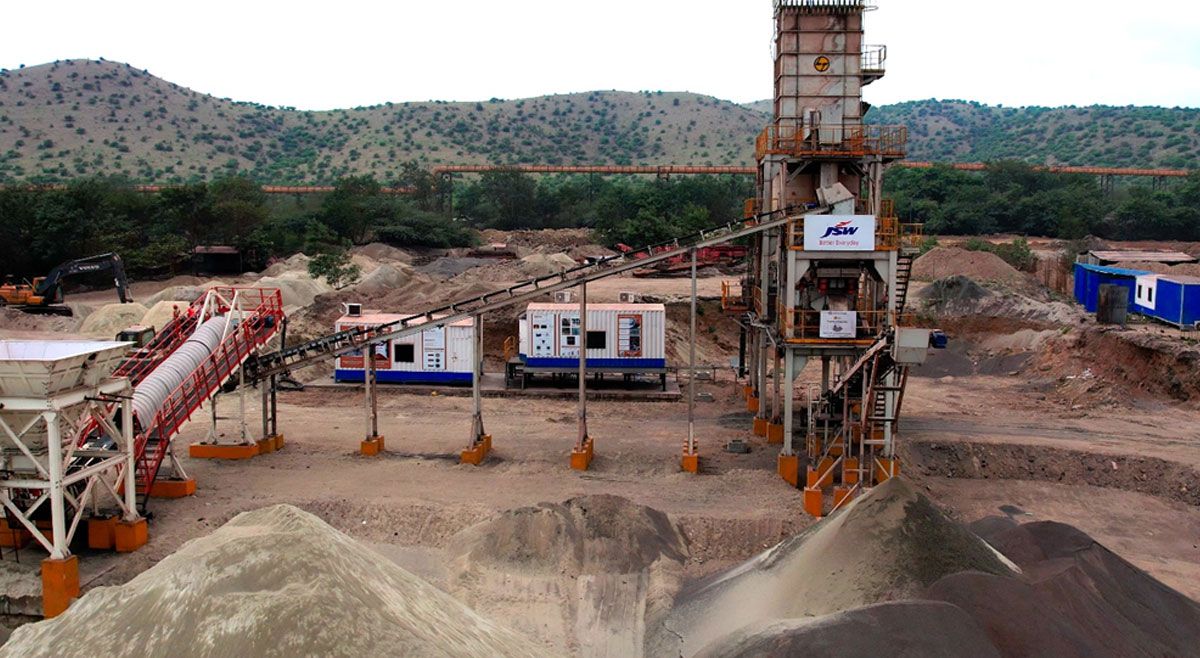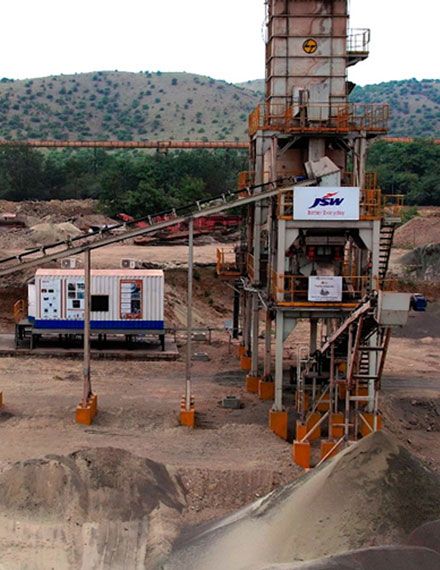Development of Construction Sand from Waste Steel Slag
The iron and steel making processes generate huge amounts of slags, and whilst iron-making slag can be fully utilized in the cement making process, finding uses for steel slag from oxygen steel making (BOF) has always proved notoriously difficult. As a result, vast quantities of steel slag (~200 kgs for every tonne of steel produced) has had to be disposed of to landfill, consuming valuable landfill space and also placing into the wider environment quantities of potentially harmful heavy metals.
JSW Steel commenced, in April 2020, an extensive research and development project which aimed to identify a viable and sustainable solution to the problem of steel slag.
Following extensive theoretical studies, laboratory testing and field studies, JSW Steel has developed an innovative process for transforming waste steel slag into IS-383:2016 Code for Aggregates for Concrete, compliant sand that is suitable for construction, as well as slag fines which can be used in cement making as well as some agricultural applications. The project culminated in the construction and commissioning, in June 2022, of the world’s first steel slag to sand facility (with a capacity of 800 tonnes/day) at JSW’s Vijayanagar works.
As a result of the project and the development of the Vijayanagar facility, the following benefits have been realised:
- the recycling of approximately 2.7 lakh tonnes of steel slag waste each year;
- the avoidance of an equivalent tonnage of steel slag waste from entering local landfill;
- net reduction in Vijayanagar works’ carbon dioxide emissions by approximately 100 tCO2e/annum from the reduced use of vehicles for slag disposal within the plant (This does not include the emissions incured for river sand excavation and transportation);
- creating 9 new jobs within the local community.
But there is one further significant benefit associated with this project. In delivering a solution which creates a useful new source of what is an already increasingly scarce commodity, the project has created a reduction in demand for natural river sand in the region of 2-3 lakh tonnes. In doing so, the project has not only made a small but important contribution to the prevention of river and delta degradation and the associated loss of habitats, but it has also reaffirmed JSW Steel’s determination to take on the industry’s most intractable problems in the knowledge that perseverance and innovative thinking can deliver benefits far beyond those originally anticipated.


